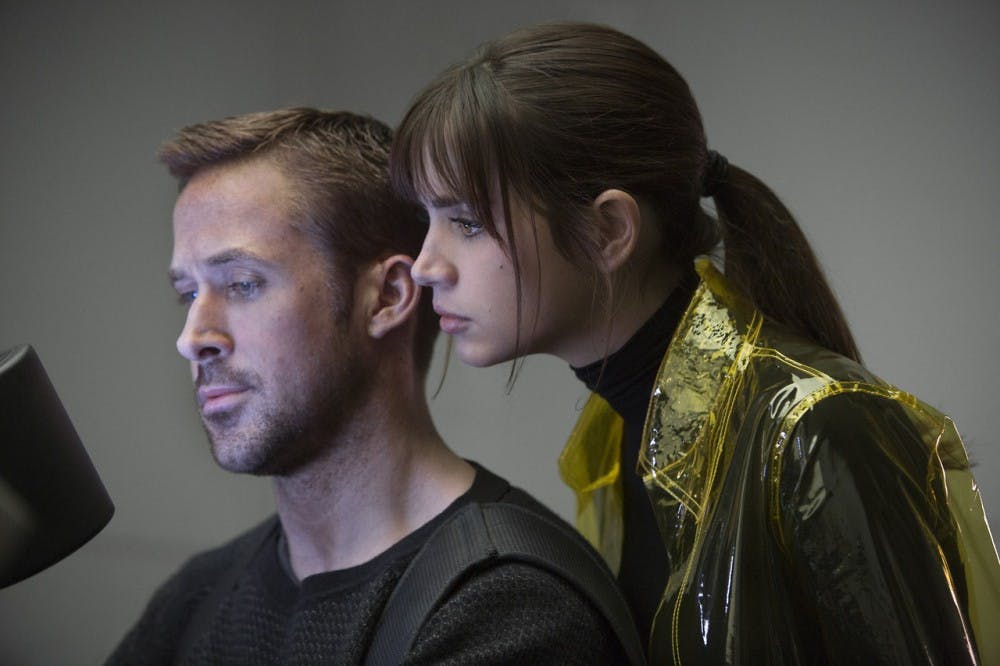"We made a monster." That is what Blade Runner 2049 director Denis Villeneuve said about his recent sci-fi thriller in a recent interview with The Telegraph.
The film, which had a production budget of $150 million, made around $92 million domestic, $259 million worldwide and, when marketing costs are included, is estimated to have cost Alcon Entertainment around $80 million. Lackluster box office numbers have led to layoffs at Alcon Entertainment and led its director to declare that he won’t be making another film like it.
“Let’s just say it would not be a good idea for me to make a movie like that twice,” Villeneuve said.
The disheartening part of this is that “Blade Runner 2049” was critically acclaimed with many, myself included, hailing it as one of the smartest, most stylish and expertly crafted sci-fi films of all time. Villeneuve was able to create a sequel that stayed true to Ridley Scott’s '80s classic without being shackled by it. From its incredible art style, sound editing, pacing, mood, acting and more, “Blade Runner 2049” is dripping with love and creativity, and it shows what can happen when an unbridled artistic vision is given the budget of a superhero blockbuster.
Sadly, art-house films don’t have a warm relationship with popularity and big budgets.
When you put “Blade Runner 2049”'s $150 million budget into context, you begin to understand why it was considered a bomb. "Spider-Man Homecoming" had a budget of $175 million, and "Wonder Woman" had $149 million. "Thor: Ragnarok" had $180 million, "Guardians of the Galaxy Vol. 2" had $200 million and "Transformers: The Last Knight" had $217 million. Each of these films come from well-established franchises and/or genres that are well-tested and well-proven to strike a chord with a large audience. And, while some of these films are quite enjoyable, none of them are pushing the boundaries of their respective genres or attempting to stand out in the way that “Blade Runner 2049” does.
When I watch "2049," I feel like I’m watching something that never should have happened. It feels as if the studio executives were tricked into thinking they were throwing money at the next "Star Wars" only to receive a nearly 3-hour mood piece dealing with what it means to be human and the moral grayness that surrounds the idea of maintaining peace and order. With its blockbuster budget paired with the avant-garde style that Villeneuve brought to the table, "2049" was destined to be both one of the best sci-fi films ever made and one that loses a great deal of money.
The fear is that studios will blame Villeneuve’s unique direction as the reason for the film’s failure and decide against this sort of style in the future in favor of the safe and simple action films that already flood the film industry. My hope is that they instead blame “Blade Runner 2049"'s budget.
Recently, we have seen many examples of unique and innovative films that don’t necessarily find a large audience, but are nevertheless considered successes because their budget is significantly lower than the bigger blockbusters. Last year’s “Logan” was made with $97 million. “Baby Driver” had a budget of $34 million. “Deadpool” had a budget of $58 million. Other well-respected sci-fi films also found success on smaller budgets like “Ex Machina” at $15 million, “10 Cloverfield Lane” at $15 million and Villeneuve’s own “Arrival” at $47 million.
"Blade Runner 2049" is the dream sci-fi movie with a monster budget and no narrative restraints, but it isn't sustainable. While I would love to live in a world where every quirky artistic director with a great idea could have $150 million to make their film, that isn’t the world we live in. Films like “2049” absolutely can succeed, but they have to be made with the right budget in mind. Even "Blade Runner 2049," which placed 34th in the overall 2017 box office, would probably had been counted as a large success if its budget had been kept at a reasonable level.
So, to the executives whose money can decide whether we’ll be watching “Transformers 20” or something truly innovative, please don’t take “Blade Runner 2049” as a sign that art films can’t be successful. Instead, look at it as an example of the importance of controlling a budget.

